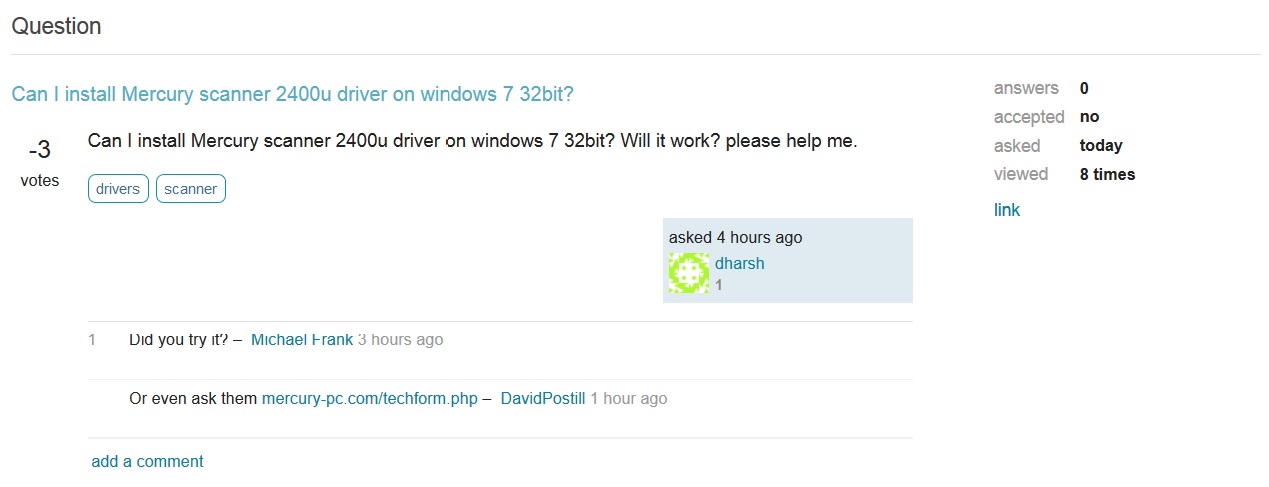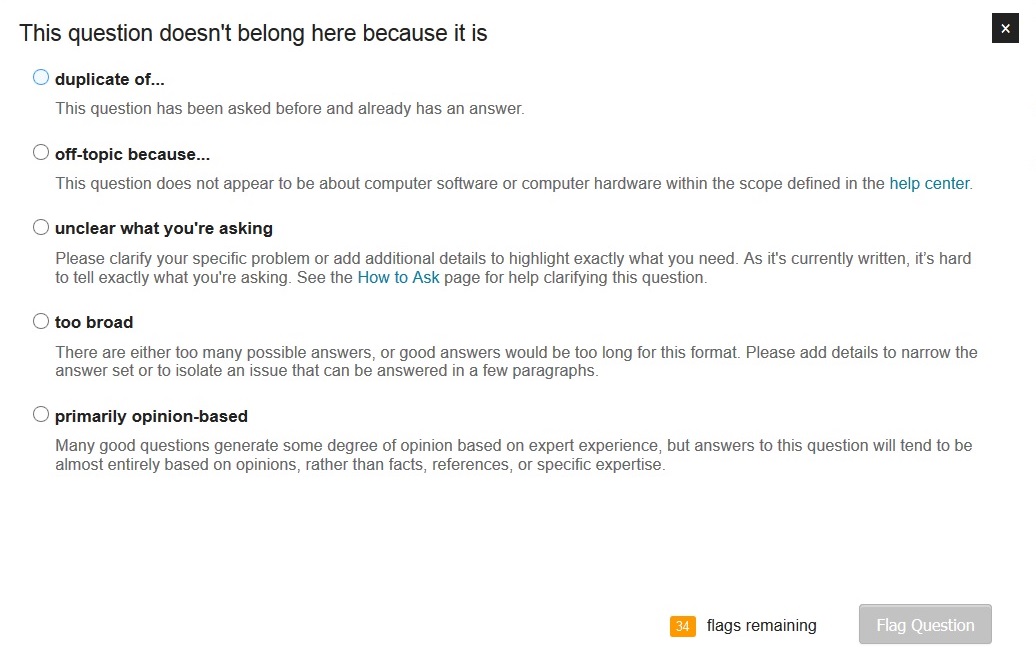Most of what you're calling flagging is actually something else. I'll describe a quick overview of the process. There are a number of paths to closure that start from different sources. I'll focus on just the paths that involve review queues.
Questions
Users with 3K+ rep can initiate action by voting to close. This puts the question into the Close Votes queue, where other 3K+ users can also vote to close. Closure can't be done for just any arbitrary reason. The post has to deviate from site requirements and the reason for closure must be specified. So voting to close includes selecting (or writing), a reason.
Users with less than 3K rep can flag a question for moderator attention (some of which is delegated). My understanding is that the "Should be closed..." sub-menu and "Duplicate" reasons get routed to the Close Votes queue (consistent with this post by slhck, which you linked to). Flagging requires selecting or writing the reason (a custom reason remains in the moderator's queue).
The Low Quality Post (LQP) queue gets populated by bots. Those questions (and answers), are identified by the system as potentially low quality and then get reviewed by humans for appropriate disposition. The cited post by slhck mentions the LQP queue also containing posts flagged by humans as Very Low Quality (VLQ) or Not an Answer (NAA).
Users with 3K+ rep see the LQP questions in the same context as in the Close Votes queue and can directly vote for closure. Reviewers with less than 3K rep vote to "recommend" closure (or Looks OK). That voting separates the wheat from the chaff and "enriches" the queue (the bot and new users often don't get it right). Recommending closure similarly requires specifying the reason.
These paths aren't mutually exclusive. A question will sometimes be in several queues because a human and a bot independently identified it.
If you come across a question on the main page, there is really no way to know whether it has been flagged for moderator attention. You might be able to guess whether it is in one of the review queues from the comments; the review queue reasons have canned comments that are easy to recognize.
But even there, some people come across a marginal question or answer on the main page and want to give the poster a chance to improve it. So, they add a canned comment but don't flag or vote on the post immediately. If the post is utterly worthless and has a canned comment, it's a good bet that it is already in a review queue.
So to your question of what to do.
- If you come across the question in the LQP review queue, it's already on a path to be handled. Just vote. No additional benefit will come from also flagging it for moderator attention, perhaps with one exception: if there is something about the post that you think warrants immediate action rather than letting it run its course (such as the content could lead to serious consequences).
- If you come across the post on the main page or First Posts review queue (or a search), flag it. If it is already in a queue, the flag count will help to prioritize it.
Deletion
All of the above applies to questions and takes it as far as closure. Closure leaves the thread on the site but prevents posting new answers to it. After closure, there is a complicated set of rules dealing with deletion, which removes the thread from the site (actually just hides it). Depending on the question's votes and answers, users as low as 10K can vote to delete some closed questions.
Deletion is voted on in a secondary queue in the moderation tools tab that is visible to 10K+ users. For questions, deletion is a new process, separate from closure, that happens outside of the flagging and standard review queues described above.
Answers
Answers are a little different; they don't get closed, only deleted, and only 20K+ users can vote to delete answers. Deletion voting is done in the deletion queue described earlier. But unlike questions, answers in that queue are fed by the process described above.
The 20K+ users can vote to delete directly at the post rather than flagging, which also puts it into the deletion review queue. Flagging by <20K users (NAA and VLQ answers), feeds both the standard review queues and the deletion review queue. While flagged answers await voting in the deletion queue, voting in the standard review queues by <20K users culls that pool of answers. My understanding is that answers in the LQP queue flagged by bots get reviewed there, and only those recommended for deletion are fed to the deletion queue.
So in terms of when to flag, it is similar to questions. However, you can encounter answers in an additional place, the Late Answers review queue. That is not a deletion review queue, so if you encounter a problem answer there, flag it as you would an answer you find via the main page.



